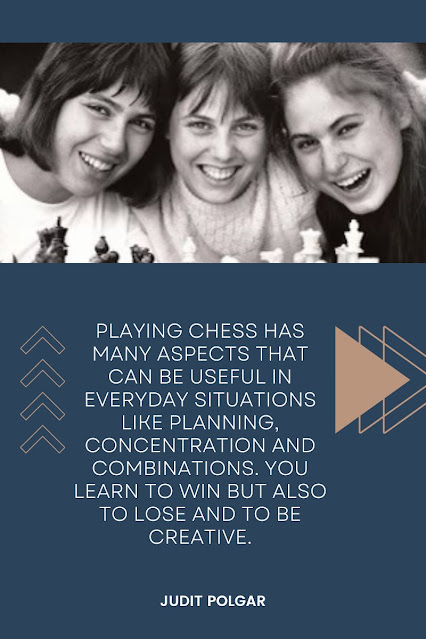Introduction: When Skincare Becomes a Practice of Self-Relationship At first glance, Skincare Journal by Linley & Miranda may appear to be a simple tracking tool—pages to note products, routines, and results. But spending time with the journal reveals that it is designed to be something far deeper. This is not merely a planner for skincare; it is a structured space for rebuilding one’s relationship with the self through consistency, patience, and awareness. In an age where skincare is often marketed as instant transformation, this journal quietly challenges that narrative. It frames skincare as a long-term conversation between the body, the mind, and daily habits. The underlying message is clear: healthy skin is not achieved through products alone, but through intentional self-care practiced over time. A Journal Built on Intentional Structure One of the journal’s strongest qualities is its structure. Linley & Miranda have created ...
Introduction
The Polgar sisters are three Hungarian women who achieved remarkable success in chess. Susan, Sofia, and Judit are known for their incredible success in chess. Their father, Laszlo Polgar, believed in the theory of dedicated practice and used it to train his daughters to become world-class chess players. This theory suggests that anyone can achieve mastery in a particular field with enough time and effort. The Polgar sisters' story is a testament to the effectiveness of this theory. Their story has attracted worldwide attention. They were homeschooled by their father, Laszlo Polgar, who believed that any child could achieve extraordinary success in any field with dedicated practice. The Polgar sisters' story is often cited as an example of the power of true course and the role of parental influence in child development.Polgar's Theory and the Inspiring Polgar Sisters' Experiment
Laszlo Polgar was a Hungarian educational psychologist who strongly believed in children's potential to achieve extraordinary things. He developed a theory of dedicated practice, which he believed could be applied to any field of interest. In the late 1960s, he set out to prove his theory by having children and raising them to be experts in their chosen fields. The Polgar sisters' experiment was a result of this theory.Laszlo Polgar's theory of dedicated practice was not just limited to chess. He believed that children could excel in any field they chose with the right guidance and dedication. He held the conviction that skill is not inherent, but rather can be honed through diligence and repetition. This belief challenged the prevailing notion that talent is something that one is born with and cannot be designed.
The Power of Dedicated Practice
Susan, Judit, and Sofia were homeschooled from a young age and were taught chess as their primary subject. Their father believed that with dedicated practice, they could become world-class chess players. Laszlo Polgar's method of teaching involved setting up a strict regimen of exercise and study. The sisters would study chess for six to seven hours daily, and Laszlo Polgar would closely monitor their progress.The Polgar sisters' story is a testament to the power of dedicated practice. All three sisters became world-class chess players, with Susan becoming the first female Grandmaster in history. Their success in the game of chess has been attributed to their father's belief in their potential and his unwavering dedication to their training.
The Polgar sisters' experiment has also sparked a debate about the role of parental influence in child development. While some argue that parental impact can be detrimental to a child's development, others believe that with the right guidance, parents can help their children achieve extraordinary things.
Furthermore, the Polgar sisters' experiment has sparked a debate about the nature vs. nurture argument in child development. While some believe that a child's abilities are determined by their genes, others argue that the environment and experiences a child has can significantly impact their development. The Polgar sisters' story provides evidence that nature and nurture shape a child's potential and abilities.
Furthermore, the Polgar sisters' experiment has sparked a debate about the nature vs. nurture argument in child development. While some believe that a child's abilities are determined by their genes, others argue that the environment and experiences a child has can significantly impact their development. The Polgar sisters' story provides evidence that nature and nurture shape a child's potential and abilities.


Comments
Post a Comment
Please do not add any spam link in the comment box